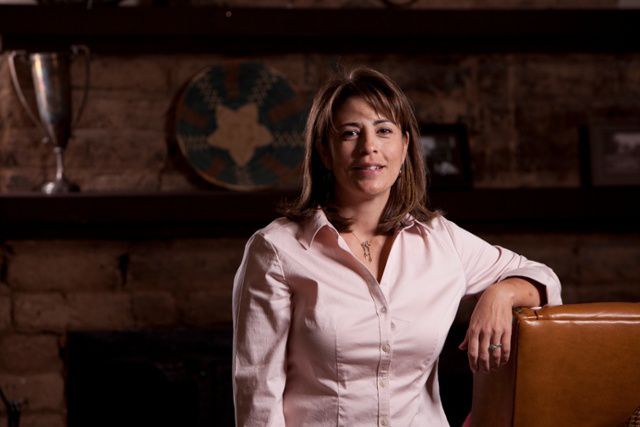You Should Know, I’m an Environmentalist
Published
6/8/2017
By Stefanie Smallhouse, Southern Arizona rancher and Arizona Farm Bureau’s First Vice President: My husband, Andy, was taken aback not long ago when a customer opened up a friendly discussion with, “You should know, I’m an environmentalist.” An assertion Andy had heard many times but at this moment made him think, “Well ok that’s fine and good but what does that make me?” Later that day, standing in our kitchen, Andy repeated the statement to me and said, “What does that even mean?”
So, I too wondered, what does such a declaration mean? It rolls off the tongue so easily. This proclamation, I can only guess, is made to garner respect as an expert on the environment, earn kudos for a certain environmental “consciousness” or perhaps just fire a warning shot to pre-empt differing opinions.

Stefanie Smallhouse suggests all ranchers should start introducing themselves as environmentalists, after
When Andy introduces himself as “a rancher,” it’s because he wakes up every morning and goes about doing all of the work essential to care for our cattle and provide food to others. This requires quite a bit of attention to the environment. Decisions that involve vegetation, soil and water management. Five generations of ranchers in this family managing the same resources do not happen without proper consideration of our environment.
When the farmers I know introduce themselves as farmers, it’s because their life is about the work of growing food and fiber. Balancing the needs of the crop with that of the soil. Consideration of water use and chemical applications. Certainly, these farms and ranches serve as an outdoor classroom where the growers are students of the environment with years of experience. The lessons learned will ensure enough food and fiber to be grown on less land with fewer resources for future generations.
When a plant geneticist introduces themselves as a scientist, it’s because they spend their days investigating new biotechnologies to develop drought-tolerant seed varieties, genetically modified (GM) corn and cotton
When a logger introduces themselves as a logger, it’s because they go about the work of cutting trees in areas managed for thinning. This thinning takes the place of what fires once managed for our environment. Urban interface and air quality standards inhibit the use of fire today, leading to catastrophic fires which completely devastate forest ecosystems.
These folks engage on a daily basis in a working relationship with our environment. Especially today with science and technology improvements, it would be self-defeating to make decisions contrary to a sustainable environment, and unlikely given their actual consciousness for the resources they manage and the problems they must solve. How many folks who lay claim to the title of “environmentalist” actually go to work every day with the environment as their
Editor’s Note: A shorter version of this editorial appeared earlier in the Arizona Republic. We run the article in an issue of Arizona Agriculture and The Voice blog on behalf of all of the agriculture community.